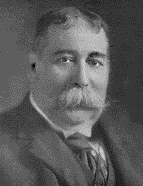

His work had great repercussions in Brazil when it was published but fell into oblivion after 1928. The fact that he lived abroad contributed greatly to this, without minimising the weight of the controversies in which he became involved and the enmities he amassed. He was overshadowed by Brazilian historical memory regarding its own diplomatic history, at the expense of his recognition as a rebel diplomat who dared to challenge Brazil's official policy towards Latin America. The celebrations of his centenary in 1967 saved him momentarily from oblivion, but the reinterpretation and revalorisation of his historical thought and his interpretation of Brazilian foreign policy—especially that related to the United States—are a recent trend, dating back to the 1990s, with the recovery of his theses on Pan-Americanism and his clashes with Rio Branco, Brazil's Foreign Minister between 1902 and 1912 and the architect of the ostensible rapprochement between the two countries. The works Pan-americanismo [Pan-Americanism] and América Latina e América Inglesa [Latin America and English America] have been the subject of studies and reinterpretations interested in his theory of the three Americas and the defence of Bolivarian-inspired Monroism. Since then there has been a historiographical movement to republish and study his most important historical works, especially D. João VI no Brasil [King João in Brazil], which is the most valued of these works, as well as A formação histórica da nacionalidade brasileira [The historical formation of Brazilian nationality] and O movimento da Independência [The independence movement]. Given its originality and thematic novelty, the travel book No Japão [ In Japan] still arouses interest today. This work was the result of his pioneering visit to Japan as a Brazilian diplomat and relied on studies based on Pierre Loti.
This work is financed by national funds through FCT - Foundation for Science and Technology, I.P, in the scope of the projects UIDB/04311/2020 and UIDP/04311/2020.
